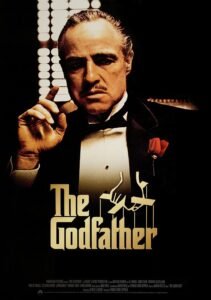The Godfather (1972) Fzmoviesnet
The Godfather (1972) stands as a timeless classic in the annals of cinema, weaving a narrative tapestry that transcends mere storytelling and delves into the very essence of power, family, and the American Dream.
Background of The Godfather
In the early '70s, director Francis Ford Coppola undertook the ambitious task of bringing Mario Puzo's novel to life. The journey from page to screen was fraught with challenges, but the result was a cinematic masterpiece that would redefine the gangster genre.
Plot Synopsis
At its core, The Godfather narrates the story of the Corleone crime family and their patriarch, Vito Corleone. The intricate plot explores themes of loyalty, betrayal, and the consequences of wielding power. Michael Corleone's transformation from a reluctant outsider to a ruthless leader forms the crux of the narrative.

Cinematic Excellence fzmoviesnet
Coppola's directorial prowess shines through, capturing the essence of the Mafia underworld with unparalleled finesse. The film's cinematography, particularly the use of shadows and iconic scenes like the horse head in the bed, has etched itself into the cinematic consciousness.
Cultural Impact
Beyond its critical acclaim, The Godfather left an indelible mark on popular culture. From references in other films to the iconic line, "I'm gonna make him an offer he can't refuse," the movie's impact is felt far beyond the confines of the silver screen.
Character Analysis
Marlon Brando's portrayal of Vito Corleone and Al Pacino's Michael Corleone are performances for the ages. The characters' complexity and development add layers to the narrative, making the audience empathize with figures traditionally seen as antagonists.
Behind the Scenes
The making of The Godfather wasn't without its challenges. From budget constraints to casting controversies, the film's production history is as intriguing as the storyline it brought to life.
Legacy of The Godfather
The Godfather not only redefined the gangster genre but also paved the way for a new era in filmmaking. Its influence is evident in subsequent films, and the Corleone family remains an iconic figure in the collective imagination.
Critical Reception
Upon its release, The Godfather received mixed reviews from some critics who found fault in its glorification of crime. However, over time, the film's merits have been universally acknowledged, solidifying its status as a cinematic masterpiece.
Cinematic Techniques
Coppola's use of long takes, strategic framing, and symbolic imagery adds depth to the narrative. The movie's visual language is a masterclass in cinematic storytelling.
Soundtrack and Score
Nino Rota's haunting score is inseparable from the film's atmosphere, enhancing emotional beats and creating an enduring sonic identity for The Godfather.
See>>> Logan 2017 Review
Comparison with the Novel
While adaptations often face scrutiny, The Godfather successfully navigates the transition from page to screen, capturing the essence of Puzo's novel while making necessary cinematic adjustments.
Memorable Quotes
The Godfather is a treasure trove of memorable lines that have seeped into everyday conversation, attesting to the lasting impact of its dialogues on popular culture.
The Godfather Trilogy
While the first film is hailed as a classic, the sequels, though differing in tone, continue the legacy, providing a comprehensive exploration of the Corleone saga.
More Movie>>>
Conclusion
In conclusion, The Godfather (1972) is not just a movie; it's a cultural phenomenon. Its exploration of power dynamics, family, and morality resonates with audiences across generations, making it an immortal piece of cinematic history.